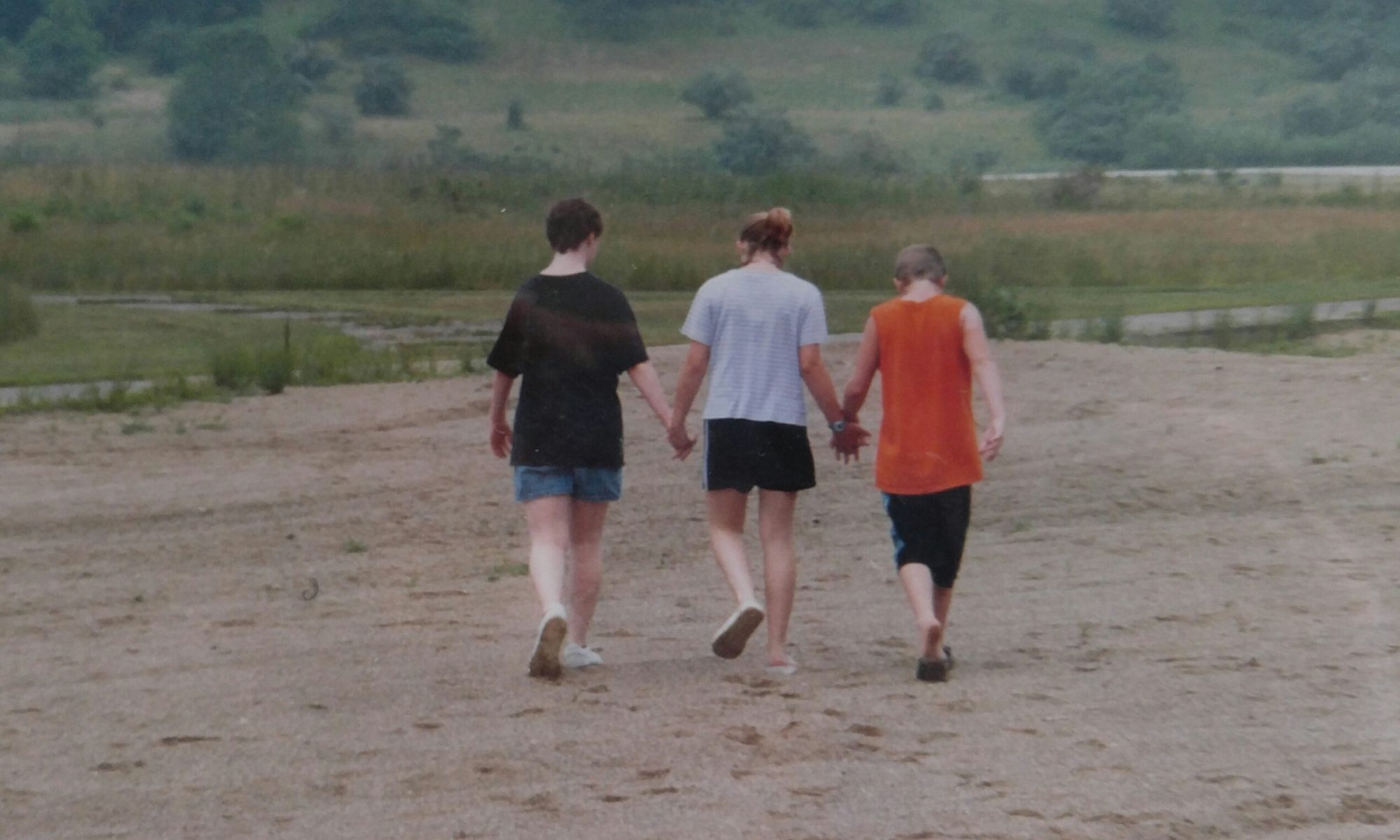
Being a parent isn’t easy. Besides the typical day to day care, you are also responsible for helping your children grow into loving, kind, responsible adults. And when you add autism into the mix, it becomes a dance of never letting the typical sibling feel like their sibling with autism is more important than they are.
I’ve heard so many horror stories of the typical sibling ending their relationship with their parents so they can avoid being around the special needs sibling. Or, in the case of one family I know, they ask their elderly mom to move closer to them – but only if she puts their special needs brother in a home and not go visit him. I simply can’t imagine that kind of pain.
While Mandy is quick to say that she never felt resentful of Casey and Rob (except for when they took equine therapy – she was obsessed with horses and wanted to ride, too! Thankfully, the stable allowed her to ride at the end of the sessions, but I never felt like it was enough), I remember times that she was mad at them and for good reason.
Rob cut apart a necklace that was very special to her. Casey chewed the feet off of all of their Barbies. Rob chewed the horns off of her unicorns. Casey (the girls shared a room) wasn’t as interested as Mandy was in having a clean room. Rob did this – Casey did that. And every time, my heart broke for Mandy. All I could do was tell her they didn’t understand. In the case of the necklace, I was exhausted, stressed – and I didn’t handle it well at all. Mandy was furious – I simply couldn’t handle it…. and I told her she shouldn’t have left it where he could get it. Knowing even as I said the words, she didn’t leave it lying around. Knowing I wasn’t handling the situation right at all. And knowing I would be crying ugly tears that night in bed. I was failing her.
That being said, Mandy was also the first to defend Casey and Rob. And when she lost her temper, she was a force to be reckoned with. She might have inherited my temper – seeing someone treated unjustly still brings out that side of her. And I’m proud of that. I got a call when she was in 6th grade. A brown=nosing classmate told the teacher Mandy was mean to her. The teacher, assuming Mandy would never tell me she had gotten in trouble, called me. Mandy told me right away what had happened – and it was nothing like the teacher had been told.
The teacher felt I should take Mandy for counseling and possible medication for her “anger issues.” I’m sure after our conversation, that woman thought I needed the same, but I let her have it. Mandy admitted she did call the other girl a name – but only after the classmate made fun of another girl in their class. I also got a call from the high school once. Mandy happened to overhear a boy calling Casey a name – and again, she let him have it. She was called a bully – the boy was ignored. I told Mandy I would always stand behind her. If she got suspended for standing up for Casey or Rob or another student, we would go shopping and have a fun few days.
But – it was hard. For most of Mandy’s special events, many times, only one parent could be there. When possible, I left Casey and Rob with my parents or Tracie so we could both be there for Mandy. I hated missing things and was so worried she would start to resent autism. She denies thinking this – it’s just my mom guilt talking.
I tried to remember all of the ways my parents made my brother and I feel special and did them with Mandy. There were times I told her she looked “sick” and I called her off school, sent Casey and Rob and we went shopping. They were sent to bed earlier and we stayed up watching movies. We played games. Anything I could think of that would be special memories to her. It wasn’t easy and still feel the guilt of sitting at the top of the stairs playing horses or Barbies with her so I could still hear what was going on downstairs. I hated being torn and not being able to completely focus on her. She says she doesn’t remember it that way – and I thank God for that.
I know you are exhausted from the 24/7 care for your child with autism. But, please, find little ways to let your other children know they are just as special. Put notes in their lunch box. Text them. Play games. Skip school. Put everyone else to bed early. There are a million little ways to let them know that you are always thinking about them. Take turns with their other parents doing something special. Or ask a grandparent to stay with your child with autism. (Yes, I know finding someone you trust to stay with your child with autism is hard – sometimes, impossible – but it’s so important!)
At our autism support meeting last week, it was suggested that at our next meeting, we talk about how to help typical siblings understand their sibling – how to parent both. Mandy spoke up and said she hadn’t felt any less important or special than Casey or Rob – that she didn’t resent them at all. I’ll admit – I had tears in my eyes. I don’t know how I did it, but somehow, I got lucky enough that she grew up feeling important, cherished and loved.









